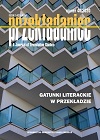ZBIORNIKI ZE STĘCHŁYMI ŚCIEKAMI: PRZEKŁAD SPECJALISTYCZNEJ TERMINOLOGII W POWIEŚCI DETEKTYWISTYCZNEJ
GREASY SCUMMY SUMPS: TRANSLATING SPECIALIZED TERMINOLOGY IN DETECTIVE FICTION
Author(s): Daniel LinderContributor(s): Joanna Sobesto (Translator)
Subject(s): Lexis, Translation Studies, Theory of Literature
Published by: Wydawnictwo Uniwersytetu Jagiellońskiego
Keywords: alliteration; literary translation; specialized translation; technical terms; terminology;
Summary/Abstract: Fictional texts containing specialized terms pose a challenge for literary translators. Rooted in raw factual accuracy, terms can nonetheless be used in extremely expressive ways. Raymond Chandler used oil industry terminology (bull wheel, derrick, oil field, scum, walking-beam, and especially the term sump) in his first novel The Big Sleep (1939) within intentionally artistic phrasings involving alliteration, parallel structuring and repetition. The novel was (re)translated into Spanish many times (El sueño eterno 1947, 1948, 1958, 1972 and 2001), offering a view into how different translators met this challenge. Though the published translations reveal lower frequency of repetition in all cases, inconsistent co-textual use of the terminology and usage of non-terms, omissions and errors, these instances were qualitatively compensated with creatively reproduced alliterative elements and added literary devices. This study of a seldomly explored aspect of literary translation shows how professionals are aware of the importance of language for specific purposes in literature and how effective balances between technical accuracy and literary expressiveness can be attained. For theorists who might believe that literary and technical translation are separate worlds of translatorial action, the results of this study show that literary translators tend to bridge this gap proficiently with both accuracy and literary flair.
Journal: Przekładaniec.
- Issue Year: 2020
- Issue No: 40
- Page Range: 105-129
- Page Count: 25
- Language: Polish

